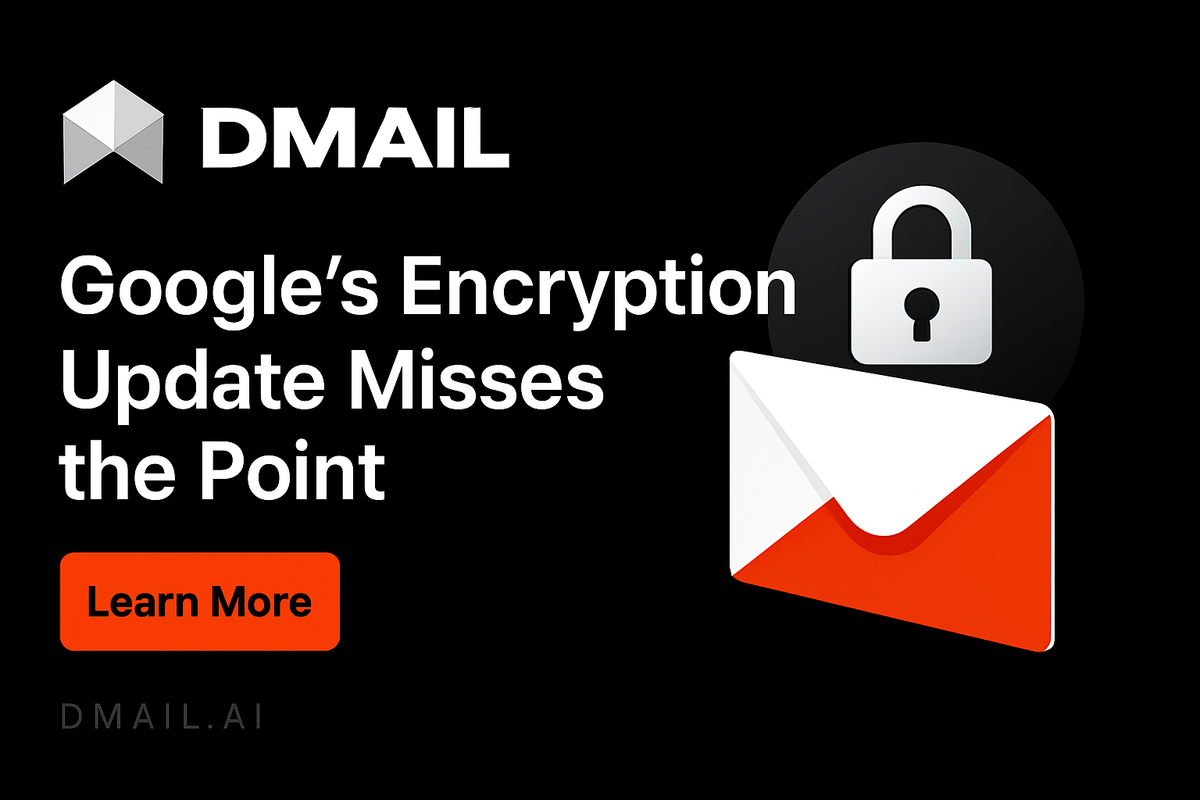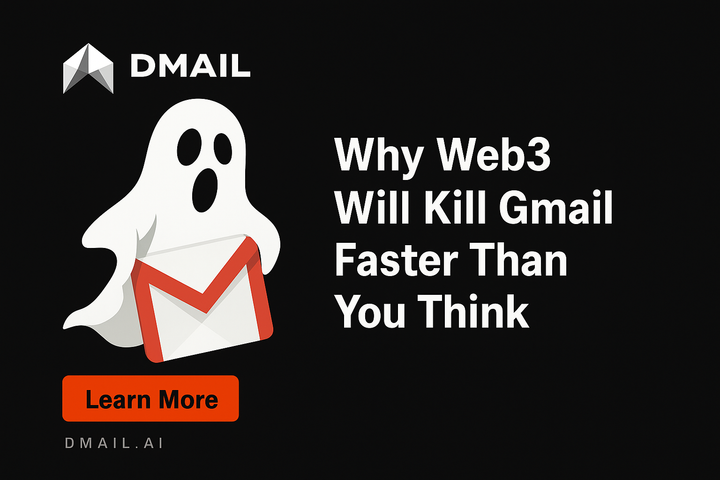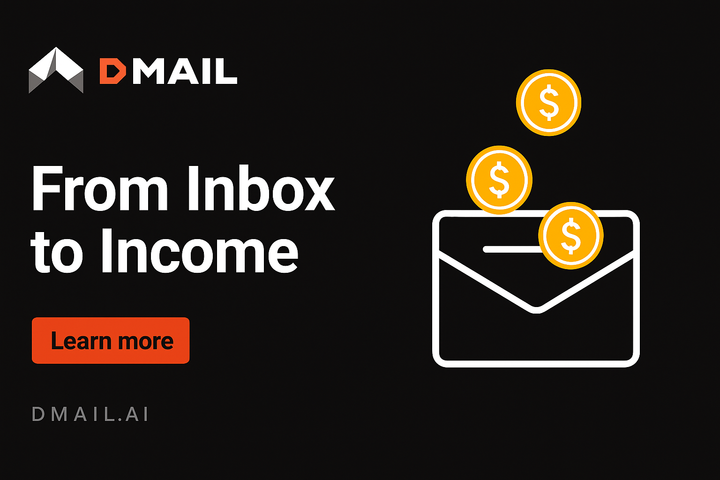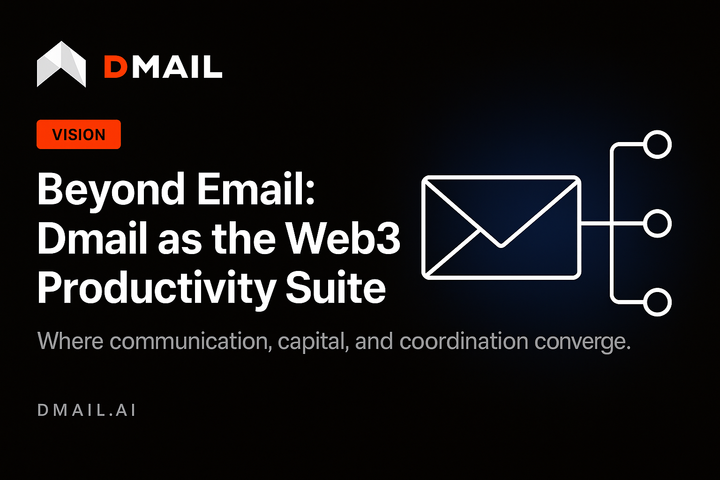Google’s Encryption Update Misses the Point
When you own your encryption keys, you own your digital identity — permanently.

Privacy Without Ownership Isn’t Privacy
Google’s latest Gmail announcement has been making waves. Headlines promise “end-to-end encryption for all,” suggesting a new standard for digital privacy. Yet, as with most Big Tech breakthroughs, the reality is more nuanced.
This update doesn’t democratize encryption — it centralizes it. While Google now allows encrypted messages to be sent outside its ecosystem, the company still controls the keys, permissions, and infrastructure that make those messages readable. Privacy is delivered as a service, not a right.
The Illusion of Control
End-to-end encryption sounds definitive. But if the service provider governs who holds the keys and when they can be revoked, the system isn’t truly end-to-end — it’s admin-to-admin.
In Google’s model, encryption ensures that your emails are secure in transit and storage, but they remain subject to the policies of the platform. Your privacy exists only as long as Google permits it. You cannot independently verify, move, or truly own your data.
This is the fundamental limitation of closed-system encryption: the user never leaves the walled garden.
The Decentralized Alternative
Dmail approaches privacy differently. In Dmail’s architecture, encryption isn’t a feature layered onto a centralized network — it’s the foundation.
Every message is encrypted on the client side, with keys generated and controlled entirely by the user. Data is stored across a distributed infrastructure where no single authority can read, alter, or revoke access.
This ensures three essential qualities:
– True sovereignty – Only users hold their keys.
– Data portability – Encrypted messages are verifiable and transferable.
– Platform independence – Privacy doesn’t depend on any corporation’s policy.
Unlike Google, Dmail doesn’t just protect your communication — it decentralizes it.
Why Ownership Matters
Encryption alone prevents outsiders from reading your data. Ownership prevents insiders from controlling it.
That’s the gap Big Tech still refuses to close. By keeping encryption within proprietary systems, companies preserve the same imbalance that made data exploitation possible in the first place.
Dmail eliminates that dependency. When you own your encryption keys, you own your digital identity — permanently.
The Bigger Shift
Google’s move signals something larger: public awareness of privacy is accelerating. Users now expect encrypted communication by default. But the next phase of this evolution isn’t about better locks — it’s about removing landlords.
Dmail represents that next phase. A communication system where security isn’t conditional, ownership isn’t abstract, and trust isn’t outsourced.
Because real privacy isn’t something you’re granted — it’s something you control.

Connect with Dmail: Website | Twitter | Discord | Github | Telegram





Comments ()